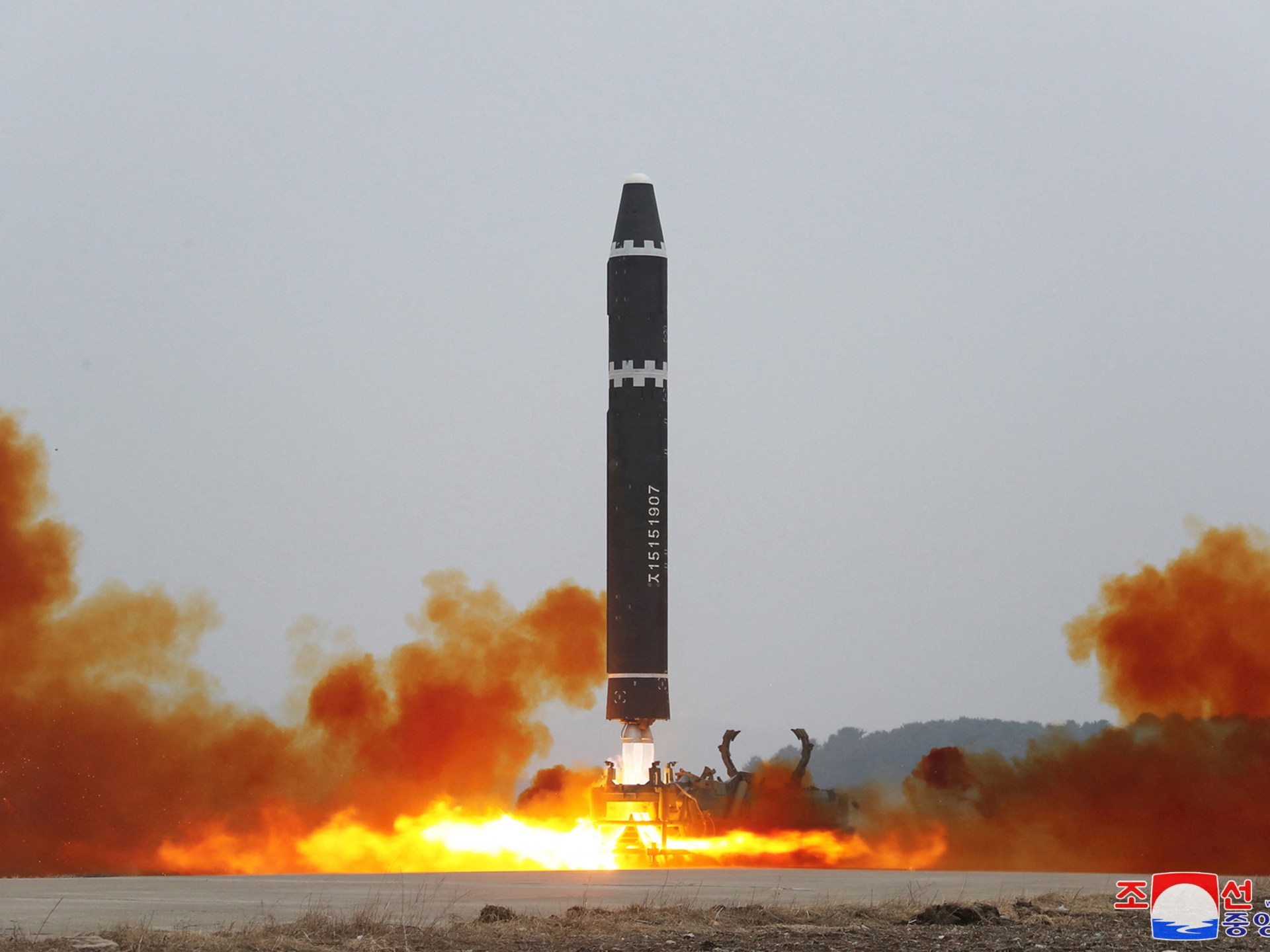The South Korean military said that North Korea fired two short-range ballistic missiles early Monday, while the Japanese Coast Guard suggested that North Korea fired a third missile in the third missile launch in two days, and it comes the day after the United States and South Korea conducted joint air exercises.
On Saturday, North Korea launched an intercontinental ballistic missile, the most powerful in its arsenal.
Japan said Saturday's missile landed in its exclusive economic zone, prompting the United States and South Korea to hold joint air exercises on Sunday.
And Pyongyang announced that the Korean People's Army conducted exercises on Monday in response to the South Korean-American maneuvers, blaming the two allies for the deteriorating security situation, according to a report published by the official North Korean Central News Agency.
"Through today's exercises with the participation of multiple and very large missile platforms, the tactical nuclear attack demonstrates the full readiness of the Korean People's Army for deterrence and its will to confront" against the joint air maneuvers, KCNA said.
And the South Korean army announced in a statement that it "detected the launch of two short-range ballistic missiles on Monday morning, adding that one of them flew 390 km and the other 340 km before falling into the East Sea," which is also called the Sea of Japan.
The statement described the launches as a "serious provocation that undermines peace and stability on the Korean Peninsula," and called on North Korea to stop such actions "immediately."
And the sister of North Korean leader Kim Jong Un warned that her country is closely monitoring Washington and Seoul's moves to deploy more US strategic weapons in the region, pledging "parallel countermeasures".
"The momentum of our use of the Pacific Ocean as a shooting range depends on the nature of the work of the American forces," Kim Yo Jong said in a statement carried by the North's Korean Central News Agency.
"surprise" drills
And North Korea considered that its launch of an intercontinental ballistic missile on Saturday was a "surprise" exercise that demonstrated the ability of its forces to carry out a "fatal nuclear attack".
Japan stated that Saturday's missile flew for 66 minutes and landed in its exclusive economic zone, and Seoul and Washington quickly responded by conducting joint air exercises on Sunday that included a strategic bomber and "Stealth" aircraft.
The missile launches in violation of sanctions drew widespread condemnation, including UN Secretary-General Antonio Guterres' strong condemnation Monday of Pyongyang's missile tests, which he called on to stop such "provocative actions".
North Korea gave its soldiers an "excellent mark" for Saturday's "surprise drill" and missile launch, but South Korean analysts noted that the estimated nine hours between giving the order and firing the missile was not that fast.
But Kim Yo Jong rejected these criticisms, describing them as "an attempt to belittle the readiness of the DPRK's missile forces."
Kim Yo Jong added that North Korea has "satisfactory" missile technology and capabilities and "will now focus on increasing its strength."
The series of missile tests came just before Seoul and Washington began joint hypothetical exercises later this week aimed at improving their response in the event of a North Korean nuclear attack.
Last week, Pyongyang warned of an "unprecedented" response to the upcoming maneuvers, which it views as preparation for war.
Inter-Korean relations deteriorated to their lowest point in years after North Korea declared itself a nuclear state, with leader Kim calling for a "massive" increase in weapons production, including tactical nuclear weapons.

